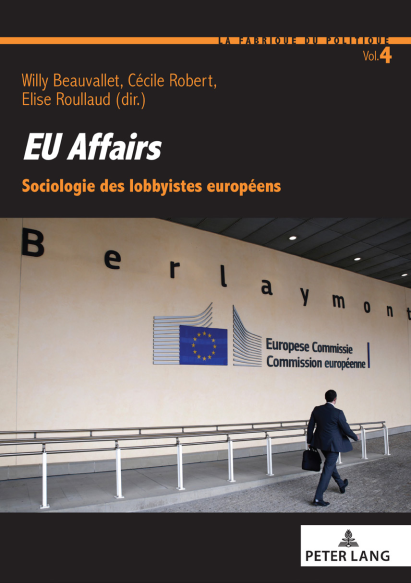EU Affairs - Sociologie des lobbyistes européens
By :
Cécile Robert ,
Willy Beauvallet,
and Elise Roullaud
Release date: Jan 2022
Peter Lang
Number of pages: 314
ISBN: 978-2-8076-1979-1


What are the actors of interest representation working in Brussels and who are they? What does the study of lobbying professionals tell us about its forms, its aims and its capacity to orient European public policies?
With around 12,000 organisations listed in the European transparency register and growing budgets, interest groups active in the European institutions are a concrete and tangible reality in the functioning of the European Union. However, we still know very little about those who carry out this activity.
This collective work aims to fill this gap and shed light on the recent transformations of the European lobbying landscape. By examining the practices and social trajectories of interest representatives working in Brussels, the empirical research gathered here lifts the veil on a world that is often fantasised and disparaged. They offer first-hand information to researchers, students, journalists and citizens who are interested in these issues. The contributions are based on field surveys using a wide variety of methods (ethnography, interviews, archives, prosopography) and explore a variety of organisations and sectors of activity: very large companies, European federations, public affairs firms, NGOs, trade unions, those involved in financial regulation, the port or pharmaceutical sector, etc.
Through the sociological portrait of lobbyists, this book highlights the forms of interdependence and collaboration that link them to political and institutional actors. The study of the practices associated with lobbying shows how they co-produce public action, but also what resources they use to do so, and to what extent these are very unevenly distributed between the different interest groups. The analysis of the social trajectories of lobbyists makes it possible to describe the structuring of a labour market, and progressively of a profession. Finally, it brings to light the growing density of circulation between the public and private sectors, more commonly referred to as the revolving door: far from belonging to separate universes, more and more lobbyists have previous experience in institutions. In this sense, this collective work contributes to the study of European integration by providing new knowledge on how European institutions and public action are being transformed.











